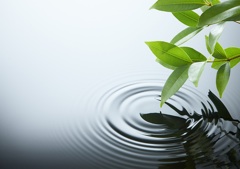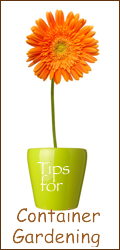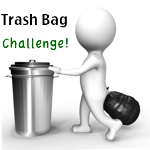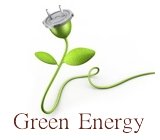Water Conservation Facts
Saving Water at Home
Water Conservation Facts - So what's the big deal about conserving water?

Painless ways to save water; the stuff that life is made of. No substance aside from air is more essential to life on our planet.
Our atmosphere constantly recycles water through evaporation and precipitation. Although it is said that there exists the same amount of water today as there has ever been, evidence suggests that fresh water is becoming less and less accessible to us. Water levels have been on a constant decline in dugouts, lakes and rivers and water restrictions have become a summertime way of life in North American communities.
As water supplies dwindle, the cost to acquire it will increase. Learning to save water will not only ensure that water supplies will be available for essential applications but it'll save you a bundle of money as costs go up.
There are a number of painless changes we can make without becoming uncivilized cave dwellers. But watch out, once you start, you'll never look at water the same way again.
Water Conservation - Facts for Saving Water at Home
Kitchen Water Conservation Facts
- Fill a Pot ~ Rather than filling the sink with soapy water, fill the biggest pot or pan you'll be washing and use that as your dishpan
- Fill the Sink ~ Fill the sink no more than 2 inches deep.
- Rinse ~ Use a cup or bowl to pour water over the washed dishes or turn a trickle of water on for each few dishes, then off again.
- New Model Dishwashers ~ Save water and time by eliminating the pre-rinse if you have a newer model dishwasher.
- Keep a Jug of Cold Water in the Fridge ~ No need to run water down the drain waiting for it to get cold.
- Keep a Tub or Bowl in the Sink ~ Catch all the water that runs into the sink and use it for rinsing hands, watering plants, wiping floors etc.
- Water Saver ~ Install an Instant Off Water Saver
on the tap.
- Full Loads in the Dishwasher ~ Run the dishwasher only when it's full.
- Compost ~ Rather than using the disposal, start home composting
- Aerator ~ Add a water saving aerator to every faucet in your house.
- Thaw Frozen Food in the Fridge ~ Plan meals ahead and move frozen food into the refrigerator instead of thawing in water. It takes 2 or 3 days to thaw 2 lbs. of meat.
Laundry Water Conservation Facts
- Use Appropriate Settings ~ Select the appropriate water level for the size of load.
- Front Loading Washer ~ Front load washers are designed to use much less water than top loaders. They use less detergent too.
- Reuse Towels ~ Reuse dish towels and towels at home and in hotels.
Bathroom Water Conservation Facts
- Check For Leaks ~ In the toilet tank, place a few drops of food coloring so you can see if water from the tank leaks into the bowl.
- Install a Low Flow Toilet ~ Low flow toilets use a very small amount of water for flushing.
- Low Flow Showerhead ~ There are many well designed low flow showerheads that deliver shower water at about half the regular rate.
- Flush Less Often ~ If you don't have a low flow toilet there are some things you can do to reduce your water consumption. Don't flush insects or tissues; use the trashcan. Don't flush urine every time.
- Toothbrushing ~ Don't leave water running while toothbrushing. Only a small amount of water is actually required for brushing teeth but leaving the water running can turn it into a 2 gallon fiasco.
- Composting Toilet ~ A composting toilet uses the least amount of water of all toilet options.
- Filling The Tub ~ Plug the tub before turning on the bathwater.
- Maintain Toilet ~ If your toilet tends to run, change the innards.
- Showering ~ Turn the water off while you're shampooing, shaving and soaping.
Garden Water Conservation Facts
- Rain Barrel ~ Install a rain barrel to collect the rainwater that falls on your property.
- Xeriscaping ~ Create a beautiful landscape with drought resistant plants.
- Drip Irrigation ~ Drip systems put the water only where you want it without the losses from evaporation and run off.
- Mulch ~ Apply a layer of mulch around your plantings. It'll reduce water needs and keep weeds down too.
- Water in Morning or Evening ~ Avoid watering during the hot part of the day and more of your water will get to the roots.
- Shut off Spray Nozzle ~ Use a spray nozzle with a shut off at the end of your hose.
- Avoid Fine Spray ~ Use a spray pattern that produces fat droplets. More fine spray and mist is lost through evaporation than reaches the plant.
- Adjust Sprinkler ~ Avoid watering the driveway, sidewalks, house and other structures by adjusting the sprinkler and water flow to water only.
- Reduce Grassy Areas ~ Consider changing unused grass areas to low water use spaces. Brick, concrete and flagstone patios and walkways require no watering.
- Adjust Mower to 3 Inches ~ A too short lawn dries too quickly. A 3 inch lawn can shade its own root system and reduce water loss.
- Rain Gauge ~ Put up a rain gauge and subtract any rainfall from the watering regime.
- Use Drought Tolerant Shrubs on Slopes ~ Planting shrubs on sloped areas, especially drought resistant shrubs, prevents soil erosion and water losses through runoff.
- Kibosh the Automatic Watering Routine ~ Automatic waterers make no allowance for rainfall and other weather that affects watering needs. Check your lawn and gardens for moisture at root depth (about 2 inches down). If there's moisture down there watering isn't necessary.
- Place Trays Under Garden Containers ~ Catch water overflow in pot trays, the plant will slowly drink it.
- Garden Shower ~ Set up an outdoor garden shower amid your greenery and water your garden while you shower the day's dirt off.
- Catch Tap Runoff ~ Place a bucket under your outdoor tap and rinse garden dirt from your hands under the tap whle catching the water to be used for watering plants.
- Fountains ~ Trickle or overflow fountains don't lose as much water through evaporation as spray fountains.
- Be Proud of Your Crunchy Lawn ~ Let your lawn go dormant.
General Water Conservation Facts
- Car Washing ~ Use a bucket and sponge and a quick spray of fresh water to rinse.
- Check Your Water Bill ~ Your water bill can hold the first clue to the presence of a water leak.
- Water Bottles ~ Assign a stainless steel water bottle to each member of the family and reduce glass washing.
Visitors to our Water Conservation Facts page may also be interested in the following pages.
Bottled Water vs Tap Water
Water Saving Shower Heads
Water Savers










